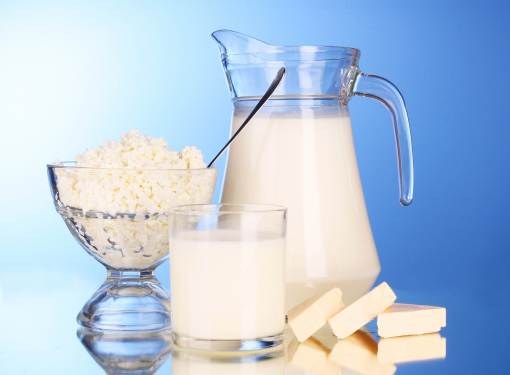Calcium – necessary for bones, teeth, normal blood clotting, muscle contraction, hormone production. The lack of calcium slows growth and causes osteoporosis. Of calcium the body needs a lot. Children up to three years need 600 mg of the element daily. Children from 4 to 10 must receive a minimum of 800 mg of calcium per day. Children aged 10 to 13 years and adults need 1,000 mg of calcium, and teenagers between 13 and 16 years – 1200 mg. For pregnant and lactating women, the normal daily intake of calcium is increased to 2000 mg. What products help to get calcium naturally.
Contrary to popular belief, calcium is not just in animal products. It is believed that the maximum amount of calcium contain milk, but in 100 g whole milk 120 mg of this element. Some plant-based foods for calcium are far superior to animals. It's Mac – 1500 mg (hereinafter, the content of calcium in 100 g of product), sesame seed – 800 mg -250 mg almonds, legumes – 200 mg.
A lot of calcium contains a young nettle – 713 mg, rose hips 257 mg, and watercress – 214 mg.
Vegetables and cereals are not rich in calcium – the maximum amount is contained in 100 g bran whole-wheat bread – 50 mg.
Because dairy products the amount of calcium in the lead serum. Therefore cheese made from whole milk, not so active supplier of calcium as many people think. 100 g of cottage cheese calcium 80 mg. But since in the store the curd in the process of production is added calcium chloride (for quick setting), it is richer in calcium than cottage cheese home from the market. The same applies to hard cheeses.
Meat products and fish calcium a little. In mammals and birds the calcium is not in the meat and in blood plasma. And to us in the body with the consumption of 100 g of meat is fed only 50 mg of calcium. The only exception is sardines. Calcium 300 mg per 100 g
But in addition to the amount of calcium in the product there is a problem of its bioavailability, i.e. the absorption by the body. Foods that contains a lot of calcium that should be consumed with foods that contain vitamin D. It is present in dairy products, butter, oily fish and egg yolk. That's why for the successful replenishment of calcium in the body are better dairy products than the poppy or sesame seed. Also absorb calcium helps ascorbic acid, the main source of which are fruits and vegetables.
Calcium and plant products
Contrary to popular belief, calcium is not just in animal products. It is believed that the maximum amount of calcium contain milk, but in 100 g whole milk 120 mg of this element. Some plant-based foods for calcium are far superior to animals. It's Mac – 1500 mg (hereinafter, the content of calcium in 100 g of product), sesame seed – 800 mg -250 mg almonds, legumes – 200 mg.
A lot of calcium contains a young nettle – 713 mg, rose hips 257 mg, and watercress – 214 mg.
Vegetables and cereals are not rich in calcium – the maximum amount is contained in 100 g bran whole-wheat bread – 50 mg.
Calcium and animal products
Because dairy products the amount of calcium in the lead serum. Therefore cheese made from whole milk, not so active supplier of calcium as many people think. 100 g of cottage cheese calcium 80 mg. But since in the store the curd in the process of production is added calcium chloride (for quick setting), it is richer in calcium than cottage cheese home from the market. The same applies to hard cheeses.
Meat products and fish calcium a little. In mammals and birds the calcium is not in the meat and in blood plasma. And to us in the body with the consumption of 100 g of meat is fed only 50 mg of calcium. The only exception is sardines. Calcium 300 mg per 100 g
The problem of bioavailability
But in addition to the amount of calcium in the product there is a problem of its bioavailability, i.e. the absorption by the body. Foods that contains a lot of calcium that should be consumed with foods that contain vitamin D. It is present in dairy products, butter, oily fish and egg yolk. That's why for the successful replenishment of calcium in the body are better dairy products than the poppy or sesame seed. Also absorb calcium helps ascorbic acid, the main source of which are fruits and vegetables.
